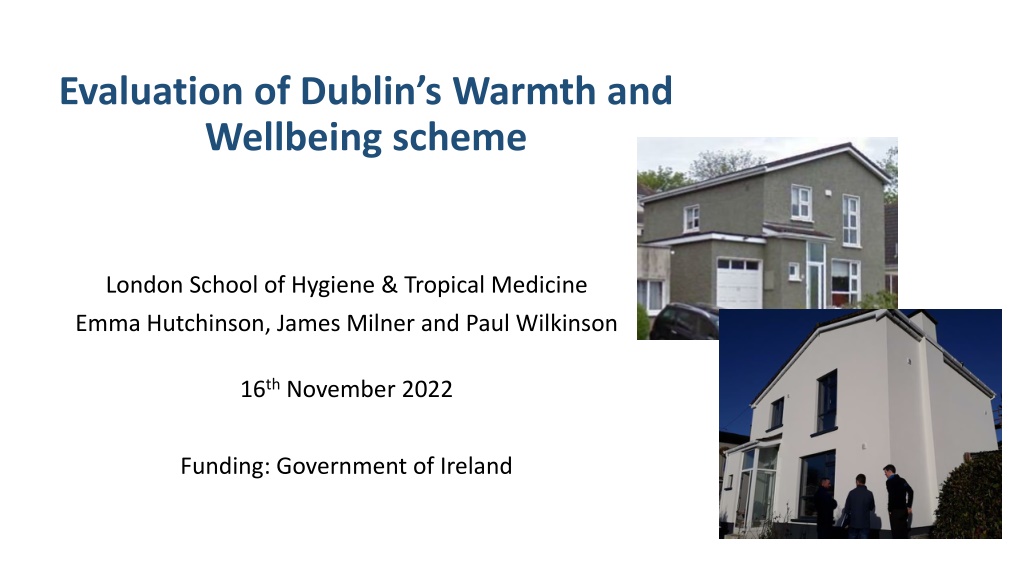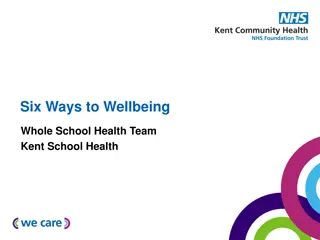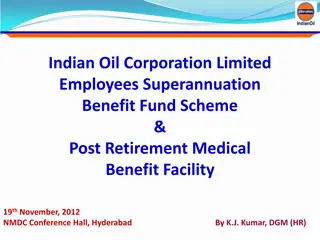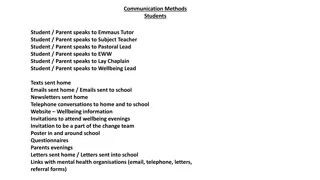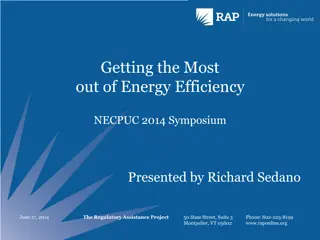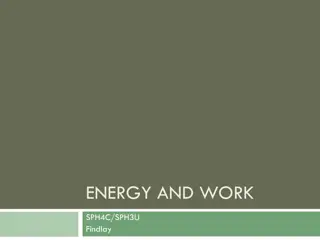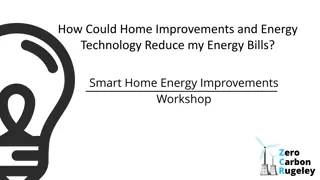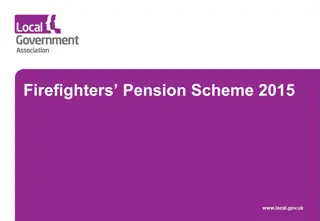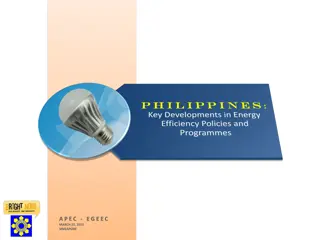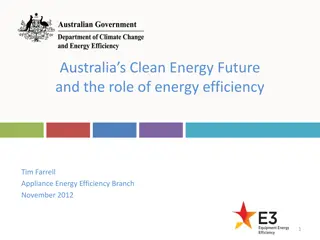Evaluation of Dublin's Warmth and Wellbeing Scheme: Impact on Health and Energy Efficiency
The evaluation study conducted by the London School of Hygiene & Tropical Medicine focused on Dublin's Warmth and Wellbeing pilot scheme, aimed at improving health outcomes and social inclusion through home energy efficiency. Funded by the Government of Ireland, the scheme targeted older individuals with chronic health conditions and those at risk of energy poverty. The main components included surveys, self-reported measures, cost recovery analysis, and empirical measurements. The intervention involved providing energy efficiency measures like insulation, heating improvements, and ventilation upgrades to eligible homes, with data collection on health outcomes, healthcare utilization, thermal comfort, and cost-effectiveness.
Download Presentation

Please find below an Image/Link to download the presentation.
The content on the website is provided AS IS for your information and personal use only. It may not be sold, licensed, or shared on other websites without obtaining consent from the author. Download presentation by click this link. If you encounter any issues during the download, it is possible that the publisher has removed the file from their server.
E N D
Presentation Transcript
Evaluation of Dublins Warmth and Wellbeing scheme London School of Hygiene & Tropical Medicine Emma Hutchinson, James Milner and Paul Wilkinson 16th November 2022 Funding: Government of Ireland
Partners Department of the Environment, Climate and Communications, (DECC), Irish Government Health Service Executive, HSE, Ireland Department of Health, Irish Government SEAI, Sustainable Energy Authority of Ireland
Warmth and Wellbeing Pilot Scheme Aimed at improving health and wellbeing outcomes and social inclusion through home energy efficiency retrofit by making homes warmer and more energy efficient Government funded (free to householders) Launched April 2016 Eligibility criteria: residence in (parts of) Dublin - (8, 10, 12, 22, 24) identified as being at risk of experiencing energy poverty suffering from chronic respiratory disease over 55 years of age tenure - owner-occupier or rented from LA or approved HA
Scheme Objectives provide deep energy efficiency improvements to the homes of older people with chronic health conditions at risk of, or experiencing, energy poverty. demonstration in Ireland of the multiple benefits of energy efficiency and its capacity to improve the living conditions of individuals Gather data on the extent to which energy efficiency improvements may result in: Improved health outcomes for individuals Reduced use of health services 4 Rialtas na h ireann | Government of Ireland
Warmth & Wellbeing energy efficiency measures Houses given all measures they were suitable for, including: loft insulation wall insulation (cavity, dry lining, external) double glazing (windows, doors) heating measures (e.g. boiler replacement, radiators) draught proofing ventilation measures (e.g. extract fans, trickle vents, in compliance with building regulations)
Main components of study Surveys conducted before and after intervention (by HSE) Self reported measures wellbeing (eg., physical and emotional symptoms) health care contacts (GP visits, emergency dept visits, hospital adm) thermal comfort (and other aspects relating to heating) Cost recovery measures Prescription data (eg., respiratory drugs) (PCRS) Empirical measurements (by SEAI) Temperatures before and after intervention using temperature loggers
Health & Wellbeing Outcomes Winter indoor temperatures Increase in winter indoor temperatures Reduced decline in indoor temperatures when it is very cold Self-reported status Improved well-being scores on multiple dimensions (e.g. mobility, self-care, pain, emotional wellbeing including anxiety & depression, physical activity and symptoms, social functioning) Health care Reduced usage of GP, Emergency Departments and hospital services Reduced volume of prescribed drugs Modelled outcomes Lower mortality (esp. cardiorespiratory)
Health & Wellbeing Outcomes cont.. Self reported heating related Increase in thermal comfort Reduced difficulty in paying fuel bills Improved sense of control over indoor temperatures Improved social inclusion
Acknowledgments Ben Armstrong (LSHTM) Ian Hamilton (UCL) Eileen O Connor (DECC) Emma O Donoghue (DoH) DECC, HSE, SEAI, Department of Health
